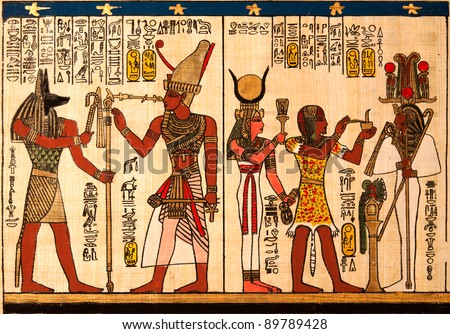Someone living in an Edomite land doesn't make them an Edomite
Absolutely. In fact, Job's 2 other friends weren't Edomites (Bildad the Shuhite and Zophar the Naamathite).
Job 42:7-9 is also interesting to note, since God speaks directly to Eliphaz, who was an Edomite, and Job prays for his friends.
Paul lived in Rome, did that make him NOT an Israelite
That's a terrible example. Paul openly called himself an Israelite and Jew. And Rome was NOT an Edomite country (since I caught you tryna sneak that in there). He became a Roman citizen through his birth in Tarsus, which is in modern day Turkey.
Even if we assume Eliphaz in Job's story is the descendant of Esau...
Elphiaz
the Temanite was emphatically an Edomite (Ezekiel 25:13, Amos 1:11-12, Jeremiah 49:7-20, Obadiah 8:9).
Edom and Israel were not always enemies, which is one reason why Deuteronomy 23:7 which you love to quote says what it says.
Indeed.
Furthermore, Jobab doesn't equal Job, and if it did, the scriptures would probably have added that in.
Was Job an Edomite king? Part 1
Was Job an Edomite king? Part 2
Was Job Jobab?
To begin with. Genesis 36:33 tells us that the second named king of Edom was "Jobab, son of Zerah, from Bozrah." There are two differences between this man’s name and that of Job. Dropping the vowel marks because they are not part of the original text, in Hebrew they are spelled ywvv and ‘ywv. Job’s name begins with an aleph (‘), and the Edomite king’s name does not, but has an extra beth (v) at the end.
There is a second problem. The name Job pretty clearly means "Persecuted," but the meaning of Jobab is unknown.
Yet, the problem may not be as great as it seems to us. First of all, we have the ancient testimony, which indicates that people familiar with the Hebrew and Semitic languages could readily think that these were variants of the same name. Second, the aleph that begins the name of Job is sometimes placed there simply to make the vowel sound more forcefully, and thus is not always a necessary part of the word when it comes at the beginning. The Edomite king’s name is pronounced "Yovav" while Job’s name is pronounced "Eeyov," both bisyllabic words. Moreover, converting the name "Yovav" to "Persecuted" ("Eeyov") is easy, and fits the purpose of the author of Job.
Click to expand...
But why don't you find me a
genealogy that traces Job through Israel in scripture?
Don't worry, I'll wait....
(A word of advice, Genesis 46:13 ain't it. 1 Chronicles 7:1 and Numbers 26:23-24 verify that.)
The crown could very well have been metaphorical.

Yet his skin turning black upon him was literal proof he was a black man to you.
Not to mention, the scriptures clearly say Job was in the land of Uz, not that he was FROM the land of Uz. To add to that, YOU have to prove Uz is named after the Edomite Uz because Shem also had a grandson named Uz that the land very well could have been named after
While Uz very well coulda been named after any of Shem's descendant with that name...
Lamentations 4:21
Rejoice and be glad, O daughter of Edom, that dwellest in the land of Uz; the cup also shall pass through unto thee: thou shalt be drunken, and shalt make thyself naked.
Click to expand...
....There is no doubt it became an Edomite land. Obviously that doesn't mean everyone in that land was an Edomite, but still. The proof is solid.
And a commentary isn't scripture, therefore it's pretty much irrelevant.

But you'll quote Zondervan Bible dictionary's eurocentric commentary on Ham as if it were scripture.
The Septuagint translators were all learned Hebrews and devout men who lived
before Christ. Their opinion is alot more valid than alotta the sources you cite..
Now, questions for you
1. When did anyone BESIDES ISRAELITES rent (i.e. tear) their clothing throughout the scriptures for any reason as Job did in Job 1:20?
2. When at anytime did the heathen (Non-Israelites) after the Law had been given to the israelites perform burnt offerings to the Most High?
3.When did the Most High refer to any heathen as his 'servant?'
1. From the same book of Job
Job 2:11-12
When Job’s three friends, Eliphaz the Temanite, Bildad the Shuhite and Zophar the Naamathite, heard about all the troubles that had come upon him, they set out from their homes and met together by agreement to go and sympathize with him and comfort him. When they saw him from a distance, they could hardly recognize him; they began to weep aloud, and they tore their robes and sprinkled dust on their heads.
Click to expand...
2 Samuel 1:2-8 is another example,
ironically by another Edomite.
2.
Naaman the Aramean in 2 Kings 5:17
“If you will not,” said Naaman, “please let me, your servant, be given as much earth as a pair of mules can carry, for your servant will never again make burnt offerings and sacrifices to any other god but the Lord.
Click to expand...
3.
Nebuchadnezzar (Jeremiah 25:9, 27:6, 43:10)
Cyrus the Great (Isaiah 44:28, 45:1)
In fact, was not Abraham born into a Heathen family?
Yet the Most High chose him to be his servant?
Were not the heathen strangers who joined with Israel and served the Most High by keeping his commandments his servants too?
How about these prophecies?
Amos 9:9-13
For, lo, I will command,
and I will sift the house of Israel among all nations,
like as corn is sifted in a sieve,
yet shall not the least grain fall upon the earth.
All the sinners of my people shall die by the sword,
which say, The evil shall not overtake nor prevent us.
In that day will I raise up the tabernacle of David that is fallen,
and close up the breaches thereof;
and I will raise up his ruins,
and I will build it as in the days of old:
that they may possess the remnant of Edom(<-Mankind in the Septuagint.)
and of all the heathen, which are called by my name,
saith the Lord that doeth this.
Click to expand...
Isaiah 19:23-25
In that day shall there be a highway out of Egypt to Assyria, and the Assyrian shall come into Egypt, and the Egyptian into Assyria, and the Egyptians shall serve with the Assyrians.
In that day shall Israel be the third with Egypt and with Assyria, even a blessing in the midst of the land:
whom the Lord of hosts shall bless, saying, Blessed be Egypt my people, and Assyria the work of my hands, and Israel mine inheritance
Click to expand...
*Edit:
In fact, lemma add the example of Timothy,
the son of a Heathen.
Then came he to Derbe and Lystra: and, behold, a certain disciple was there, named Timotheus, the son of a certain woman, which was a Jewess, and believed; but his father was a Greek: which was well reported of by the brethren that were at Lystra and Iconium. Him would Paul have to go forth with him; and took and circumcised him because of the Jews which were in those quarters: for they knew all that his father was a Greek
Click to expand...
I'm sure your reply to that is "Timothy's father was really a Jew living in a gentle state of mind".
Problem is, the original word used in verses 1 & 3
literally means Greek, as in non-Jew.
Acts 16:1 Lexicon: Paul came also to Derbe and to Lystra. And a disciple was there, named Timothy, the son of a Jewish woman who was a believer, but his father was a Greek,
Acts 16:2 Lexicon: and he was well spoken of by the brethren who were in Lystra and Iconium.
Acts 16:3 Lexicon: Paul wanted this man to go with him; and he took him and circumcised him because of the Jews who were in those parts, for they all knew that his father was a Greek.
Strong's Greek: 1672. Ἕλλην (Hellén) -- a Greek, usually a name for a Gentile
Hellén: a Greek, usually a name for a Gentile
Original Word: Ἕλλην, ηνος, ὁ
Part of Speech: Noun, Masculine
Transliteration: Hellén
Phonetic Spelling: (hel'-lane)
Short Definition: a Hellene, a Greek
Definition: a Hellene, the native word for a Greek; it is, however, a term wide enough to include all Greek-speaking (i.e. educated) non-Jews.
Click to expand...
Contrast that with what a Greek speaking Jew would actually be called.
Strong's Greek: 1675. Ἑλληνιστής (Hellénistés) -- a Hellenist (Greek-speaking Jew)
Hellénistés: a Hellenist (Greek-speaking Jew)
Original Word: Ἑλληνιστής, ου, ὁ
Part of Speech: Noun, Masculine
Transliteration: Hellénistés
Phonetic Spelling: (hel-lay-nis-tace')
Short Definition: a Hellenist, Grecian Jew
Definition: a Hellenist, Grecian Jew, a Greek-speaking Jew, that is one who can speak Greek only and not Hebrew (or Aramaic).
Click to expand...

 Yet his skin turning black upon him was literal proof he was a black man to you.
Yet his skin turning black upon him was literal proof he was a black man to you.
 )
)










